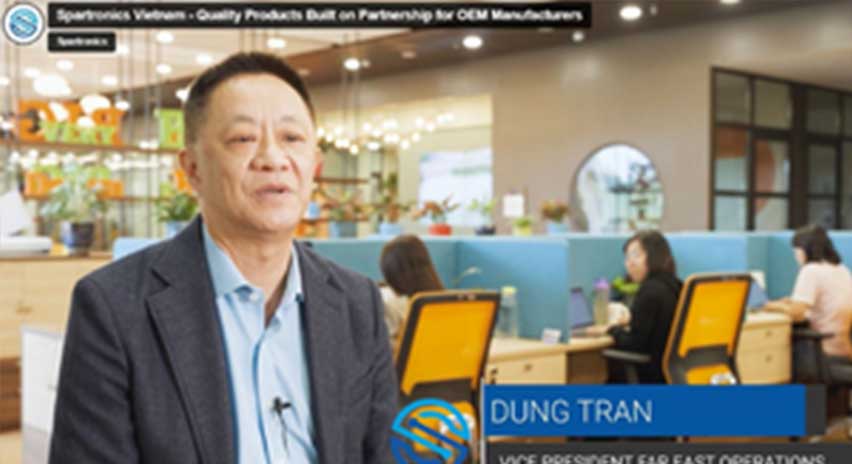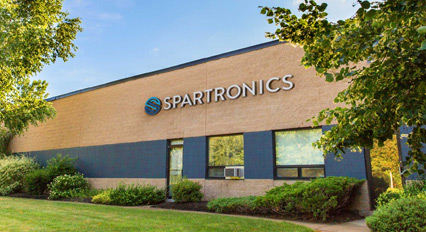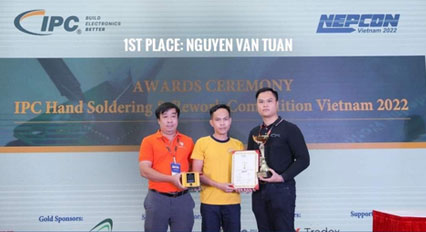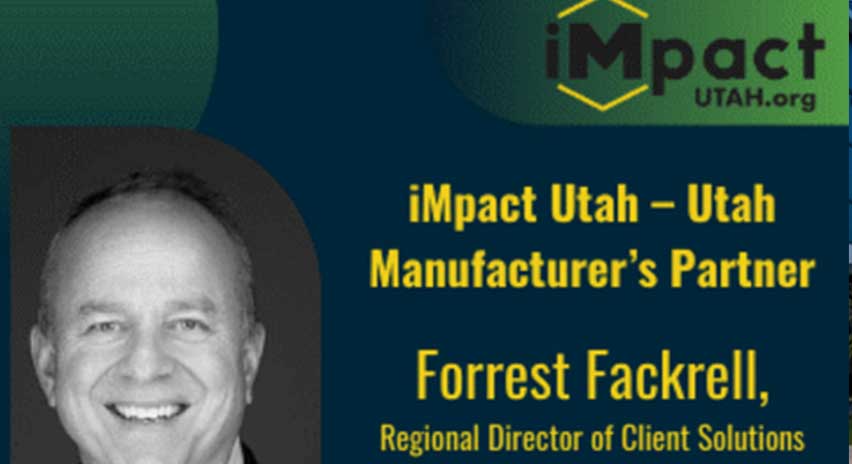Spartronics Presenting at SMTA International - Electronics Manufacturing Conference and Exposition
Spartronics will present at this year's SMTA International - Electronics Manufacturing Conference and Exposition.
Spartronics Brooksville's Engineering Supervisor, Rich Brooks, will present at this year's SMTA International - Electronics Manufacturing Conference and Exposition, which is part of the Medical Device Design & Manufacturing (MD&M) event in Minneapolis. The SMTAI conference will run from October 31 to November 3, with the MD&M show exposition running from November 2 to 3.

SMTA International - Electronics Manufacturing Conference and Exposition is the industry's strongest technical conference. It allows attendees to network with the manufacturing community to learn about the latest research and advancements in the electronics manufacturing markets. SMTA International hosts over 100 presentations discussing the latest in electronics manufacturing research and technology. Of these presentations, Rich Brooks, from Spartronics Brooksville, will present two white papers he co-authored.
Spartronics Presents…
Working alongside Spartronics Brooksville Engineering Manager James Fugate, the two authored the white paper "Ensuring the Reliability of Critical Assemblies When Implementing a new Cleaning Chemistry." This white paper will be presented at the conference's Cleaning Session, slated for November 1, at 2 P.M. The white paper details a reliability testing that included multiple soldering materials (e.g., paste, wire, fluxes) and their interactions. In addition, it discusses the entire process taken within the test and the results found with this cleaning methodology.
Abstract: Ensuring the Reliability of Critical Assemblies When Implementing a new Cleaning Chemistry
In recent years, there have been significant improvements in soldering and cleaning chemistries, and, in addition, the complexity of the PCB assemblies has also drastically increased. Because of the increase in PCB assembly complexity, the cleanliness of high-reliability assemblies has become more critical for the product's performance in the field. Therefore, the process and procedure can be very complex and complicated when qualifying a new cleaning chemistry and wash system for these high-reliability assemblies.
Spartronics developed a reliability testing matrix that included multiple soldering materials (e.g., paste, wire, fluxes) and their interactions. The reliability validation testing included the following processes: Label Application, SMT Paste Application, SMT component placement, Solder paste reflow, Wave soldering, Selective wave soldering, Manual soldering, Rework, BGA rework, and In-line cleaning. The following reliability tests were completed: Surface Insulation Resistance (SIR) testing, Ion Chromatography, and ROSE testing.
The reliability testing results concluded that the new cleaning process was in control and provided excellent cleanliness for all the various soldering process interactions. Finally, a comparison of the cleaning chemistries was completed on the effectiveness of component integrity, part markings, silkscreen, and printed labels on real PCB assemblies. These assemblies were washed 12 times through the in-line washer and inspected for any degradation.
This paper will provide the detailed process set up and parameters completed for the experiments and the test results. (Brooks and Fugate, 2022)
After the Cleaning Session, Rich will present a second white paper, "Cleaning and No-Clean Process Control using the SIR Test Method and Electrical Twin." This white paper will be presented during the Cleaning Process Control sessions on November 2 at 3:30 P.M. This white paper, also co-authored by Rich, compares two cleaning tests undertaken in the contract manufacturing of complex components.
Abstract: Cleaning and No-Clean Process Control using the SIR Test Method and Electrical Twin
Cleanliness of materials, components, and manufacturing processes are integrated together as the overall PCBA contamination level is determined by each step in the process. Complex components, such as integrated circuit packaging, leadless, and bottom terminated components trap contamination within the component's interior. Secondary processes that include wave/selective soldering, manual soldering, and topical cleaning can spread contamination to neighboring components. Controlling the process for acceptable levels of flux and process contamination improves reliability.
Miniaturization of electronics means smaller PCB layouts, smaller components, lower standoffs, and multiple PCB layers. Contamination risks are not uniform across the assembly. Localized contamination is more likely to cause a failure than the risk based on the average overall contamination level found on the PCB. Each of these factors contributes to the overall cleanliness due to the difficulty associated with the required cleaning steps.
The purpose of this research is to design electrical twin test boards in the waste area of a panel of production boards, which are highly representative of production hardware. The selected components used on the electrical twin exhibit a high risk for trapping contamination. The electrical twin test boards will be used as a process control monitor using the temperature-humidity-bias test method. The data will be plotted into an ẌR chart. The CpK will be tabulated and monitored. (Brooks, Bixenman, & McMeen, 2022)
About the Authors
Rich Brooks received his Bachelor of Science degrees in both Chemistry and Chemical Engineering and has been in the electronics industry for over 30 years. His first role was with Motorola's Advanced Manufacturing Technology group, where he spent 14 years. After Motorola, he joined the Indium Corporation of America as the Global Technical Manager for nine years. His most recent positions have been with the Jabil Design Technology and Spartronics Manufacturing teams. Rich's area of expertise is Printed Circuit Board (PCB) manufacturing, assembly, and soldering materials technology.
James Fugate has been an Industrial Engineer in the electronics contract manufacturing industry for more than 30 years. Before taking on his current role as Engineering Manager at Spartronics Brooksville, James worked as a Senior Manufacturing Engineer (Advanced Manufacturing Organization), Lead Engineer, Lead Engineer over DFX/DFM activities, and New Product Introduction Manager. James is committed to open communication, reducing costs, improving processes, and delivering a quality product to attain customer satisfaction.
If you are also attending SMTA, stop by Rich's sessions. To learn more about Spartronics Engineering or Business Development teams, schedule a meeting by visiting Spartronics | Attending the MD&M Minneapolis - Schedule a Meeting.





